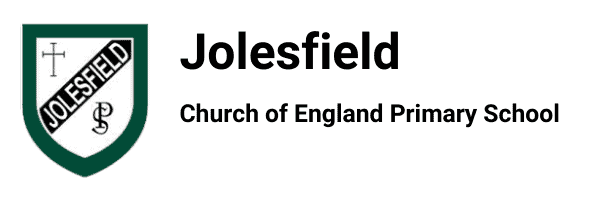science
CURRICULUM

Science
Intent
At Jolesfield Church of England Primary School, we see our pupils and encourage them to see themselves as scientists. Through our broad and balanced curriculum, children explore and discover the world around them, developing a curiosity and thirst to confidently explore and discover, so that they have a deeper understanding and love of the world we live in! We want them to have no limits for their ambitions and grow up wanting to be astronauts, engineers, marine biologists or microbiologists, to name just a few. To achieve this, we will offer our pupils practical hands-on experiences that encourage questioning and curiosity as well as extending their scientific knowledge and skills.
We plan for our pupils, across an academic year, to experience the following five types of enquiry in order to develop a broad range of scientific skills:
- Comparative and fair testing
- Observing over time
- Research using secondary sources
- Identifying, classifying and comparing
- Pattern seeking
We make the most of our extensive grounds including our Nature Garden and Reflective Garden to support a range of learning, for example, life cycles (frogs, newts) and habitats and plants (growing and labelling the parts).
Implementation
- Units are blocked to allow children to focus on developing their knowledge and skills, studying each topic in depth.
- Across an academic year, every child will complete at least two investigations. These are progressive from Year 1 to Year 6 so pupils can build from practising a specific scientific skill, for example, recording observations accurately to in Year 6 generating their own hypothesis and planning and conducting an investigation
- Each unit starts with a retrieval activity to re-activate prior knowledge
- Every unit builds upon prior learning, therefore developing depth of understanding and a progression of skills
- Pupils explore, question, predict, plan, carry out investigations and observations as well as conclude their findings.
- Children present their findings and learning using scientific specific language
- Scientific language, specific to the current topic, is taught and displayed within the classroom
- Children will ‘bump into’ their learning throughout the year through quizzes or concept cartoons which could be used as a SODA (Starter of the Day ) activity. There are also good assessment indications of whether learning has been retained over time.
- Teachers use assessment for learning in each lesson to ensure any misconceptions are addressed
- Children use all of the 5 enquiry types throughout the course of a school year. Planning considers the use of enquiry types and during lessons. Class discussions focus on the methodology used.
EYFS
Within the early years, children explore Science through ‘understanding of the world’. They will find out about objects, materials and living things using all of their senses. Their environment fosters curiosity and encourages explorative play. Children enjoy spending time outside exploring minibeasts and their habitats, observing the changing of seasons and growing plants. Scientific vocabulary is introduced and modelled.
CONTACT US
For all queries please contact Natalie Saunders or Debbie Smith in the school office on:
- (01403) 710546
- office@jolesfieldschool.co.uk
- Littleworth Lane, Partridge Green, West Sussex. RH13 8JJ
